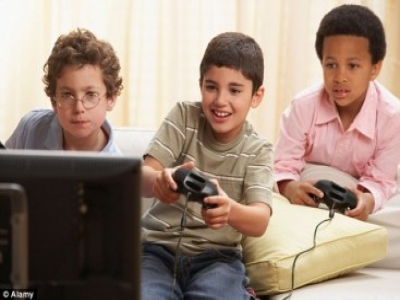
Background of the problem– Addiction is a complex condition, a brain disease that is manifested by compulsive substance use despite harmful consequences (American Psychiatric Association). Gaming addiction is becoming a major public health issue, preceding over other interests and daily activities which affects other lifestyle disorders. Worldwide there are 90% of children who play video games with an average age of a gamer being 30 years (ted talk on “your brain on game” by Daphne Bavelier)
According to WHO Gaming disorder, with its online and offline variants, it has been included in the 11th edition of the International Classification of Diseases (ICD-11) as a clinically recognizable and clinically significant syndrome, when the pattern of gaming behavior is of such a nature and intensity that it results in marked distress or significant impairment in personal, family, social, educational or occupational functioning.
Problem statement- Online gaming addiction, a matter of grave concern?
Our objective is to address the issue and spread awareness about the same before it reaches the point of addiction among the adolescent group. This form of addiction causes severe distress if one doesn’t get to play, they often leading to aggressive and destructive behavior further contributing to various mental health problems.
Academic retention is getting compromised because of addiction to online video games. Teenage is a phase where a child is sensitive, for instance in a recent incident that happened in Mumbai where a 16 year old committed suicide after his father scolded him for playing an online game named- “PUBG”. Online gaming has given an introvert personality, a type of platform to interact with people whom they meet in the virtual world, this becomes their comfortable space in leading to getting disconnected from the real world which can further trigger mental health issues like anxiety, discomfort in socializing with people face to face, mild to moderate symptoms of depression. Cases like these are coming out frequently, which indicates an urgency to control and address this matter.
The Role of Media as a trigger to Online Gaming Addiction
Advertisement and various forms of media is a big mind changer and has a huge impact in promoting such addictions- be it playing games like PubG or for that matter a want to become a public celebrity on Tik-tok. It always has a large mass coverage!!
4 out of every 5 parent want their children to spend maximum time in academics, outdoor activities or pursuing their hobbies instead of playing video games as the most common complaint heard from parents relates to concerns that the game is ‘addictive’. There are compulsive loops built into the game, making it more enticing to keep playing (for example, you can unlock more features and purchase additional items in the shop, the longer you play).
In this respect the parents are partially correct to think so. However, to one’s surprise, various studies suggests that online gaming can increase your child’s creativity as well as better capability of decision making. Well this is true, however, everything has its own sets of advantages and disadvantages.
A neuroscience study published in the Nature, shows that playing video games increase visual ability at the edge of the computer screen. Other studies reveal that video games can help an adult differentiate between different shades of gray (known as contrast sensitivity) which is required for activities like driving at night. Besides of these said benefits, gaming is still considered to be harmful, why? As the famous saying goes, anything used in excess has harmful effects. An immediate consequence of spending many hours on gaming cause detachment from the real world.
Addressing the ISSUE
BANNING is not the SOLUTION to the problem. Truth is the revenues generated by these game-making companies is higher than the global revenue for music and consumer book sales. Fortnight is one such online game that made $3 billion profit in 2018. Therefore, it is a need to look into more reliable and sustainable solution.
Some solutions:
- Incorporation of games that test mental rotation like mind puzzles
- More attention from the PARENTS. Parents should encourage them to adapt other co-curricular activities like dance, swimming, boxing etc., which will keep them engaged in some productive work
- Restrict play timings to only 2 hours in a day
- Counselling and talking to them helping them tackle peer pressure and engaging them more to socialize.
- More play dates or picnics with your children can be helpful.
Is your child is on urge of getting addiction of online gaming? “I would like to leave you with that thought”, kindly let us know what’s your take to overcome these challenges is?
We will keep you posted with SOLUTIONS!


